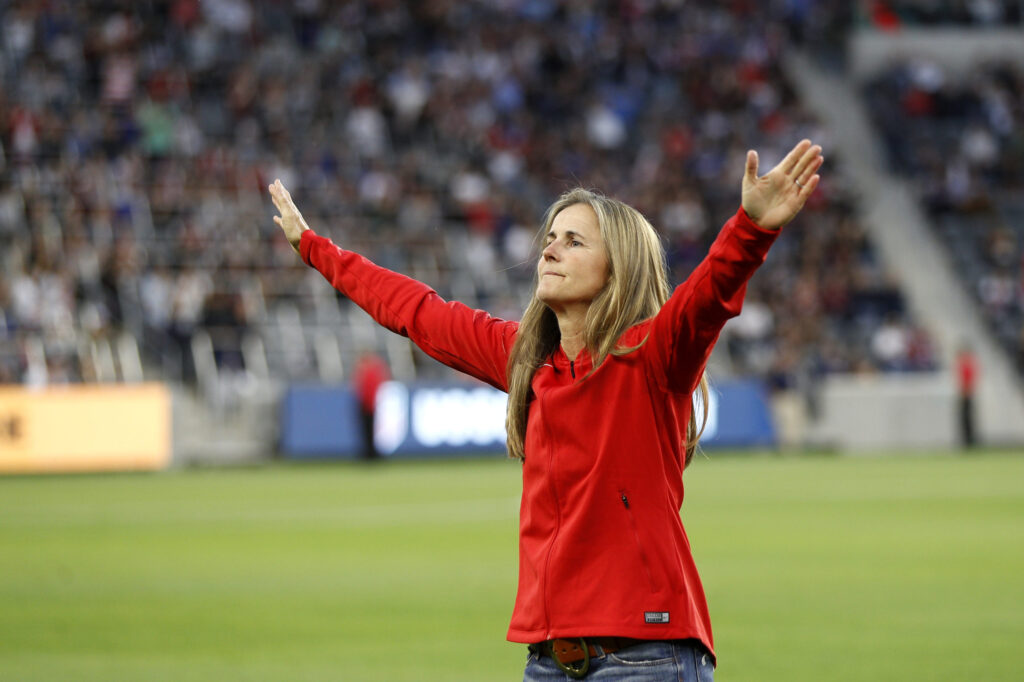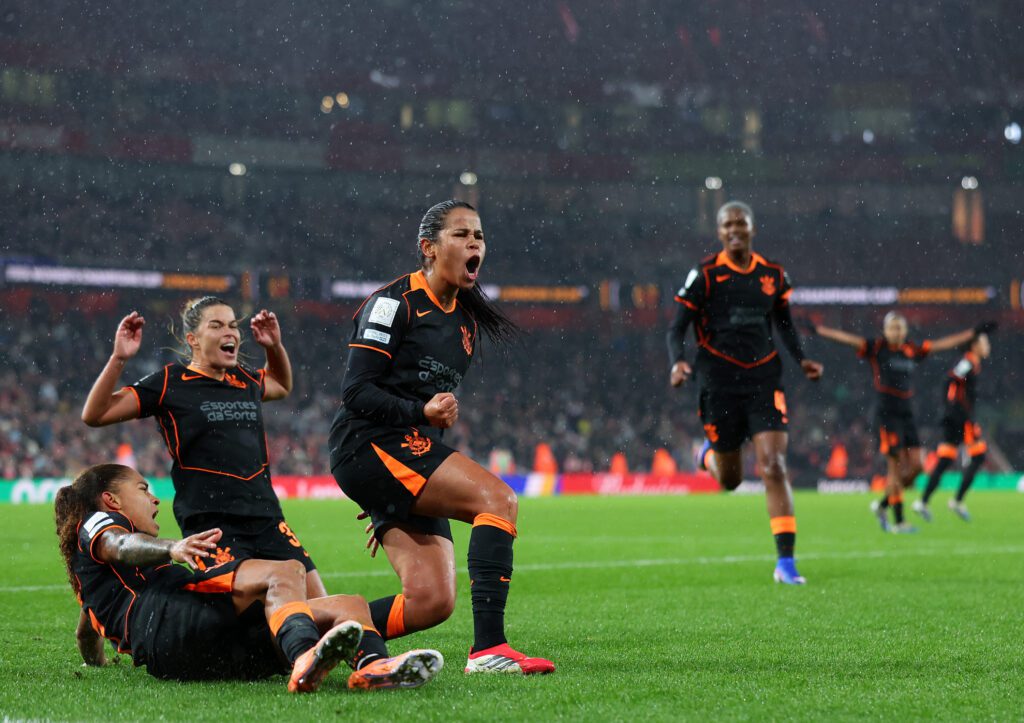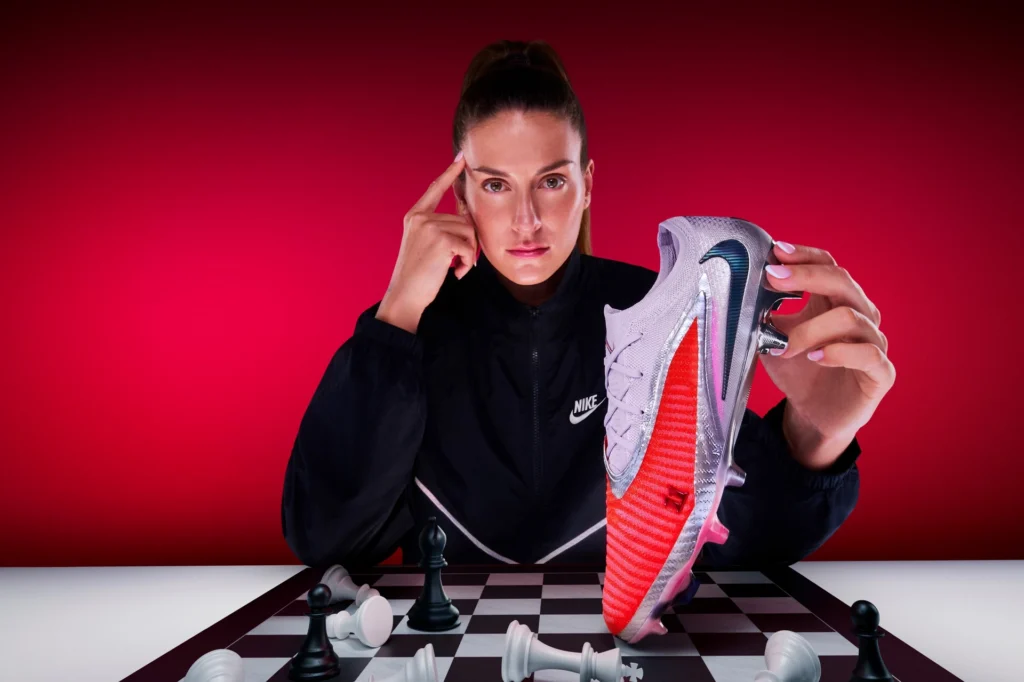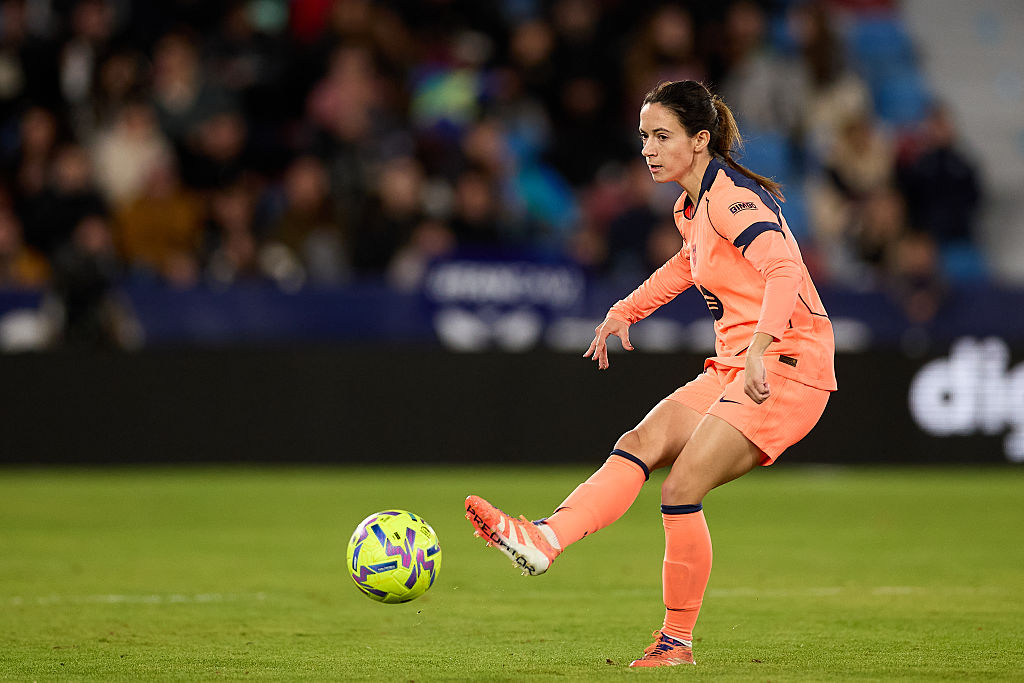In the annals of women’s sports iconography in the United States, not many images hold greater space in the minds of a generation than Brandi Chastain, jersey off, screaming on her knees in triumph after scoring the game-winning penalty kick for the U.S. women’s national team at the 1999 World Cup. That moment etched the team’s second star, one they wouldn’t add to for another 16 years, and it continues to loom large over the storied program.
Twenty-three years later, Chastain believes that victory set the USWNT on a path toward excellence, serving as one chapter in a long history of a team that always seeks to rise and meet the moment in front of them.
While there’s never a bad time to commemorate a cornerstone of women’s sports history, this year has thrown into sharp focus just how important the push for progress has been in the years since Chastain kicked the USWNT to glory.
“We had an excellent balance,” she says now of the ‘99 team. “And I think it’s that kind of humility and grace and awareness, that if every company could have that, they would be Fortune 500. I know the significance and the depth of the well of resources that are women, and women’s soccer players specifically. It’s undeniable.”

Just Women’s Sports’ first conversation with the former defender came not long after the women’s national team had settled its equal pay lawsuit with U.S. Soccer; by the second conversation, the USWNT had signed a historic CBA, the country had celebrated 50 years of Title IX, and the Supreme Court had struck down Roe v. Wade, which made access to abortion a constitutional right for nearly 50 years. To call the past few months an emotional rollercoaster for women’s rights would be an understatement.
Within all of these historic moments, Chastain feels that the public has gained a better understanding of who the USWNT was in 1999, and what the players hope to be now. Recently, Julie Foudy, Mia Hamm and Abby Wambach participated in a roundtable for ESPN’s Title IX documentary “37 words.” Goalkeeper Briana Scurry, whose penalty save against China made Chastain’s winning moment possible, has come out with both a memoir and a documentary this summer to great acclaim.
In 2022, the movement the USWNT kicked off in 1999 is finally getting the widespread appreciation it deserved. Conversations around the team also appear to be more representative of what it took to transform a corner of the sports world with just one kick.
“Part of the national team, if you play for the women’s soccer team, part of your mandate is to raise the bar for equal pay, and the other part is obviously to play brilliant soccer and win everything,” Scurry told Just Women’s Sports in June. “Those are two really high standards to hold.”
External forces surrounding the team, however, haven’t always lived up to the moment. Even after the USWNT achieved prominence in ‘99, the needle never moved quite fast enough, and the players watched as the rest of the world moved on.
“You’re winning big tournaments like the World Cup, and yet you’re anonymous,” Chastain says. “You know that you need to continue to push forward, and you feel that your own group is not taking you as seriously or holding your value the same as they hold someone else’s.”
The players and coaching staff were the glue that held the team together during the years when it felt like nobody else cared. Chastain still speaks glowingly of Tony DiCicco, who led the team to the ‘96 Olympic gold medal and ‘99 World Cup title with a coaching style that was firm but kind, gentle but with high expectations.
“I had some great coaches, great role models. They didn’t always look like me, but they cared about the space a lot, they were willing to be in a space that was not traditionally that cool,” she says. “They wanted each one of the players to blossom into the best player that they could be.”
Chastain also remembers the mental and emotional burden that fell on the players, the extent of which many are only beginning to speak about now.
“The shoulders of Mia [Hamm] and Michelle [Akers], in particular, before anything really got traction, they carried the most weight,” she says. “And they may have carried the most significant weight.”

The public didn’t always get to see the team as people first, but merely what they represented to the larger cause. “The patchwork that made up the quilt, I think, is really phenomenal,” Chastain says. “We had such a wonderful array of people, and we loved each other. And we competed hard.”
The fight for relevance and equal pay took a toll on the whole group, and the marked progress this year comes with a mixture of gratitude and exhaustion. In a way, this year’s CBA marked both the long-anticipated closing of a chapter and the ushering in of a new era that will present its own challenges.
“I’ve said many times that I will have the conversation, and I’m happy to have the conversation about equal pay,” Chastain says. “I will keep fighting and keep working and keep talking about it, but it’s exhausting.”
Watching the USWNT’s youth movement blossom after the Tokyo Olympics last summer, Chastain has the perspective of both a former player and a current coach. She has been a volunteer assistant coach for the Santa Clara Broncos, her alma mater, since 2010. Chastain’s husband, Jerry Smith, has run the women’s soccer program since 1987. Her experience on the other side of the equation has allowed her to evaluate the team with the same gentle but firm approach she got from her own coaches.
Chastain eschews the binary of old school versus new school (“I’d like to understand the definition of a modern player,” she says with a smile), but she sees conversations about technology, outside expectations and player approaches as part of the natural evolution. While no one wants to go back to the days when women’s soccer teams had to fight for facilities, staffing and other basic support structures, Chastain hopes that a level of discipline remains. Moving goals, setting up cones, working toward something bigger as a team — she doesn’t want that element to disappear even as the sport evolves.
“I feel like I want the players to feel the ownership piece forever, not [just] for this team, but forever, because they own it,” Chastain says of the USWNT. “They’re a part of the legacy of women’s soccer, and they have to own that.”

The external pressures on young players are mounting at the highest levels, as social media and name, image and likeness opportunities turn athletes into small businesses long before they even graduate college. With progress come expectations, Chastain says, and it’s all about how you meet the moment mentally.
“External forces can really create chaos, and they can create problems if the group or the people are not prepared to handle them,” she says, underlining the need for strong veteran leadership to help maintain a culture that feeds on a desire for progress.
On the field, Chastain has enjoyed the increased emphasis on versatility. She’s a big fan of rising USWNT star Catarina Macario’s game, and how she both manipulates pressure from opponents and creates chances with her elite skills on and off the ball.
As the global talent pool deepens with each major tournament cycle, Chastain respects the difficult roster balance the current team is trying to strike. Having traveled to Monterrey, Mexico to watch the U.S. win the Concacaf championship Monday night in person, she recognizes how much work the USWNT has to do between now and the 2023 World Cup.
“It’s not an easy process,” Chastain says. “Just trying to decide what pathway to finding out who the best, most cohesive unit is, is not easy. I listen to the comments and I have my own, too. I just know how difficult it is.”
The sport has changed in obvious ways since her playing days, becoming both faster and more technical. Chastain would have relished the opportunity to play that style in her prime. She references the four moments of soccer — when a team is in possession, losing possession, out of possession or regaining possession.
“Modern players [are] asked to be all things in all four moments of the game, really being asked for defenders to be attackers, attackers to be defenders, and in transition, we all have to be both of those things,” she says. “I would have liked to have been challenged to do a little bit more, maybe have our team be a little bit more sophisticated in that way.”
Chastain, 53, sees the tactical aspect of coaching as the next step forward, as access to different styles has never been easier to obtain.
Her affinity for quick adjustments on the pitch echoes her guidance for the USWNT as they continue to push for progress off the field. While the team has achieved major wins in recent years, she’s keenly aware of how quickly things can slip backwards if you let your guard down.
“If you look at the state of the world, you don’t get too close to anything. Because if you get too comfortable, the next thing you know, someone’s trying to pull the rug out from under you,” Chastain says.
“It’s like in a game, you make a play, you don’t get to spend time thinking about that play — good or bad. You have to move forward, and you have to be ready for the next play.”
Perhaps it makes sense then that there’s no young player Chastain is harder on than her former self. With the hindsight of years of work paying off, and many of them in anonymity, she wishes she had known from the very beginning that she, with the same fierceness of her triumphant World Cup celebration, was up for the challenge. She hopes this next generation of players have the desire to overcome their own fears, too.
“Now I look back, and I’m like, ‘God, you were so soft, Brandi. It wasn’t that hard. It was challenging, but if you had just told yourself from the beginning, when you were scared, that you could do it — yeah, you would have been fine.’”
Editor’s Note: This story is a part of the Just Women’s Sports inaugural Legends Collection. Check out our stories on the other legends, Sheryl Swoopes and Billie Jean King.
Claire Watkins is a contributing writer at Just Women’s Sports covering soccer and the NWSL. Follow her on Twitter @ScoutRipley.




